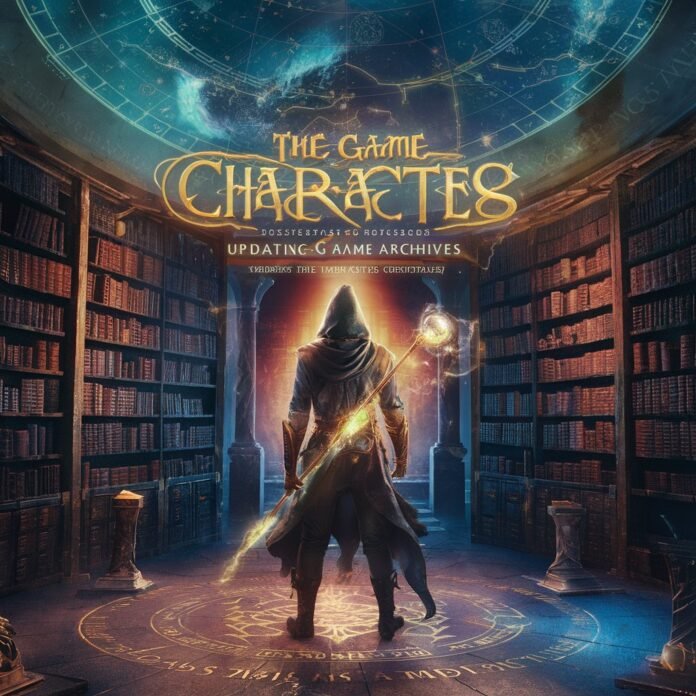Introduction
Welcome to Updates: TheGameArchives, your definitive source for the latest developments in game preservation, historical discoveries, and digital archiving efforts. As gaming evolves at a rapid pace, so too does the mission to safeguard its legacy—whether it’s uncovering lost prototypes, restoring classic titles for modern platforms, or documenting the stories behind the industry’s most pivotal moments. Here, we bring you the most significant updates from the world of game preservation, from major institutional efforts to grassroots community projects. Whether you’re a historian, collector, or simply a fan of gaming’s rich heritage, stay tuned as we track the ongoing mission to ensure no game is left behind.
1. Newly Discovered: Lost Prototypes & Unearthed Classics
The hunt for gaming’s lost relics never ends, and recent breakthroughs have brought several forgotten titles back into the spotlight. A previously unknown Sonic the Hedgehog prototype was discovered on a damaged dev cartridge, revealing scrapped level designs that could have changed the franchise’s direction. Meanwhile, a team of archivists recovered an unfinished Silent Hill demo from an old Konami developer’s hard drive, offering a glimpse into what might have been. These discoveries aren’t just curiosities—they’re vital pieces of gaming history that help us understand how iconic games were made (and sometimes drastically changed before release). We’ll break down how these findings were recovered, what they tell us about game development, and why preserving them matters for future generations.
2. Official Re-Releases & Remasters: Preservation Done Right?
As companies tap into nostalgia, we’re seeing a surge in official re-releases—from Nintendo’s Switch Online retro libraries to full-blown remasters like System Shock and Dead Space. But are these truly helping preservation, or are they selective cash-ins? We analyze which re-releases get it right (faithful emulation, bonus developer commentary) and which fall short (always-online requirements, altered content). Plus, we track which games remain trapped in licensing limbo, unlikely to ever return unless fans or archivists intervene. Could legal reforms or industry partnerships make classic games more accessible without compromising their integrity?
3. Community Preservation Efforts: Fans Saving Gaming History
When corporations won’t act, fans step up. From The Hidden Palace’s extensive prototype archives to No-Intro’s verified ROM sets, dedicated communities are doing the work that official channels often neglect. Recent successes include a fan-led restoration of GoldenEye 007’s online multiplayer after years of rights disputes and the Mega Man fan community reconstructing cut content from original source code. We spotlight these unsung heroes, explain how they operate (often in legal gray areas), and explore how their work pressures companies to do better. Want to contribute? We’ll guide you through ethical dumping, verifying ROMs, and supporting legitimate preservation projects.
4. The Fight Against Digital Decay: Games That Vanished & Those We’re Losing
Live-service shutdowns, delisted games, and dead online dependencies mean modern titles are at greater risk of extinction than 8-bit cartridges. PT, Scott Pilgrim vs. The World, and Marvel’s Avengers are just a few high-profile casualties. We track the most endangered games today—from Overwatch 1 (replaced by its sequel) to Driveclub (server-dependent even for single-player). But there’s hope: Projects like Flashpoint save browser games, while modders crack always-online DRM to keep games playable. What can be done to hold publishers accountable? Should there be legal mandates to preserve games before they’re delisted?
5. Tools & Tech: The Future of Game Archiving
Preservation isn’t just about storing files—it’s about ensuring they remain playable. New emulators like Ryujinx (Switch) and MAME updates keep pace with evolving hardware, while tools like The Archive catalog metadata for thousands of titles. We test the latest in FPGA-based console replication (Analogue Pocket, MiSTer) and explore how AI could someday reconstruct lost source code. For aspiring archivists, we provide tutorials on verifying ROM checksums, repairing damaged discs, and even extracting assets from obscure formats. The tech is advancing—here’s how to use it.
6. Legal Battles & Policy Shifts: Copyright vs. Preservation
The law hasn’t caught up with digital preservation. Nintendo’s lawsuits against ROM sites, the DMCA’s impact on modding, and the EU’s new right-to-repair laws all shape what can (and can’t) be saved. We explain recent court cases, like the Internet Archive’s eBook lending lawsuit and its implications for game libraries. Could “abandonware” ever gain legal recognition? How do museums like the Strong Museum of Play legally archive games? This section breaks down the policy fights that will decide whether gaming history remains accessible or locked away.
Conclusion: The Work Never Ends
Every update to TheGameArchives proves one thing: Preservation is a race against time. For every recovered prototype, there’s a server shutting down; for every fan project, there’s a legal threat. But the community grows stronger each year—archivists, hackers, historians, and even some forward-thinking companies are pushing to keep gaming’s legacy alive. The fight isn’t just about nostalgia; it’s about ensuring future generations can study, play, and learn from these cultural artifacts. Want to help? Share your findings, support ethical preservation, and demand better from an industry that too often treats its history as disposable. Press continue—we’ve got more to save.



